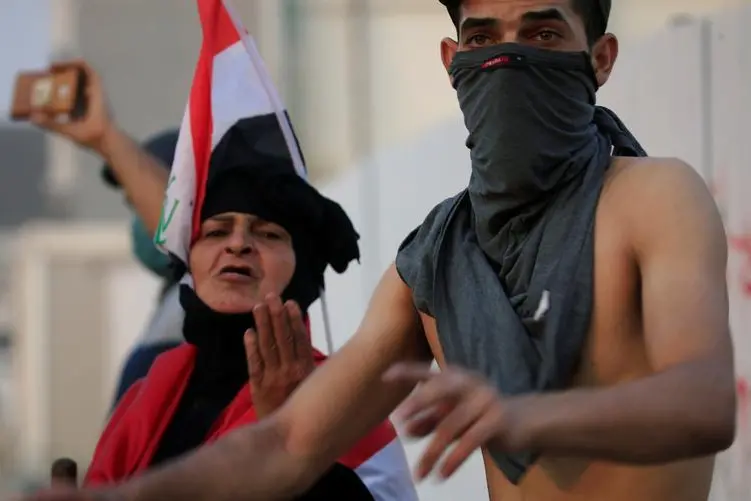PHOTO
BASRA: Protesters blocked the entrance to Iraq's Umm Qasr commodities port on Wednesday to demand better services, port employees and local government officials said, raising the stakes in some of the worst unrest in southern cities in months.
The move came hours after stone-throwing protesters set fire to the main provincial government building in the oil hub of Basra, Iraq's second largest city. The highway from Basra to Baghdad was cut off by demonstrators.
"Protesters have blocked the main entrance to the port. Trucks that carry supplies can't enter or leave the facility," said one of the officials.
Any potential disruptions to oil production could severely impact Iraq's limping economy as the OPEC member faces the overwhelming task of rebuilding after a war with Islamic State that cost tens of billions of dollars.
Umm Qasr receives Iraq's grain, vegetable oils and sugar shipments. So far it is not clear if the unrest will have a serious impact on the port's operations.
The troubles underline decades of neglect in the south, heartland of Iraq's Shi'ite majority. The region suffers from electricity outages, unemployment and entrenched corruption.
Earlier on Wednesday, security forces sprayed tear gas and fired into the air to try to disperse demonstrators.
The deaths of five protesters in clashes with security forces on Tuesday added to the fury.
Security and health sources said 22 members of the security forces had been injured in Tuesday's violence, some by a hand grenade.
Basra residents say salt seeping into the water supply has made it undrinkable and sent hundreds to hospital. This is proof, they say, that infrastructure has been allowed to collapse in the part of Iraq that produces most of its oil wealth.
Oil exports from Basra - a crumbling city once dubbed the "Venice of the Middle East" for its network of canals resembling the Italian city - account for more than 95 percent of state revenues.
Basra is a stronghold of Moqtada al-Sadr, a Shi'ite cleric and former leader of an anti-American sectarian militia who has recast himself as an anti-corruption campaigner.
Public anger has grown at a time when politicians are struggling to form a new government after an inconclusive parliamentary election in May.
Sadr's bloc came in first place in the vote, which was tainted by allegations of corruption which forced a recount.
Iraq's top Shi'ite cleric Grand Ayatollah Ali al-Sistani has expressed support for the protests.
(Reporting by Aref Mohammed; Writing by Michael Georgy; Editing by Janet Lawrence) ((michael.georgy@tr.com; +971 52 503 5332; Reuters Messaging: michael.georgy.thomsonreuters.com@reuters.net))





















